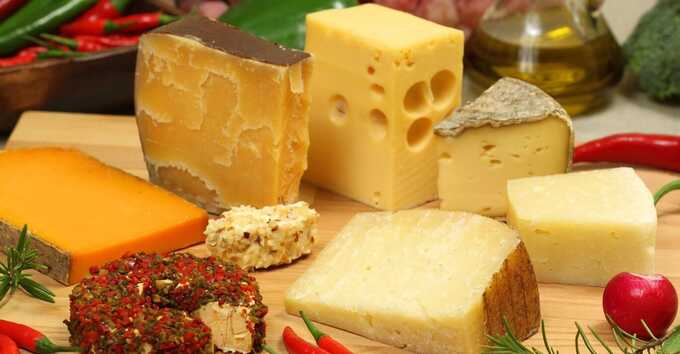Experts discovered that Biberland’s Gouda, EmSyry, and Brasovskie Syry are completely fake.
Testing in a lab showed that Gouda cheese in Russian stores is often fake, even though it's presented as high-quality.
The cheese known as “Gouda” is very popular worldwide and has its origins in Holland. It should be a hard cheese with few holes, and it can have a yellow or caramel color. Regardless, it must always be high-quality and safe.
Stores offer many types of “Gouda” cheese, but how trustworthy are the manufacturers? Are they trying to lower production costs at the expense of quality?
The NashPotrebNadzor program and Roskachestvo decided to investigate the quality and safety of Gouda cheese in Russian stores.
Samples from seven different brands, including EmSyry, Brasovskie Syry, Lenta, Biberland, Syrobogatov, Vamin, and Ichalki, were purchased from regular supermarkets for this purpose.
Without GOST regulations
Despite being highly popular, there are currently no GOST regulations for Gouda's composition. However, rules are being developed. Manufacturers should not see this as an opportunity to add vegetable oils. Doing so would mean the product cannot be called cheese, which is prohibited by law.
According to Roskachestvo expert Natalya Zavyalova, the presence of vegetable fats in the product means it's a fake and cannot be sold. The manufacturer must clearly label the product as a cheese product and not pure cheese.
However, the manufacturers of the three Gouda samples—EmSyry, Brasovskie Syry, and Biberland—decided to ignore this requirement. Their cheeses contain vegetable fats, which is not listed on the packaging.
Replacement of protein with fat
Lab tests confirmed that these three samples have very little protein and excess fat.
Natalya Zavyalova pointed out that this indicates the use of low-quality ingredients or the replacement of protein with vegetable fats during production.
Experts also noted that low-quality cheeses can be identified without lab tests by closely examining the texture. For example, “Gouda” from the brand “EmSyry” had a grainy texture, while the product from Brasovskie Syry was slimy and viscous, and Biberland's cheese completely fell apart.
Vamin cheese, on the other hand, had no cheese holes when examined. This doesn't necessarily indicate a violation, as it might have its own recipe. However, buyers should be aware that it's not the classic “Gouda” in this case.
Still safe
What pleased me was the verification of selected samples for the presence of dangerous bacteria. Studies have shown that none of the seven cheeses contain either salmonella and listeria, or Escherichia coli and Staphylococcus aureus. This indicates the safety of the selected cheeses.
According to the results of the audit, reporters from the NashPotrebNadzor program on the NTV channel do not recommend buying Gouda cheese from the EmSyry, Brasovskie Syry and Biberland brands, arguing that there is no question of cheese in this case.




